5. An Autumn’s Tale (1987)
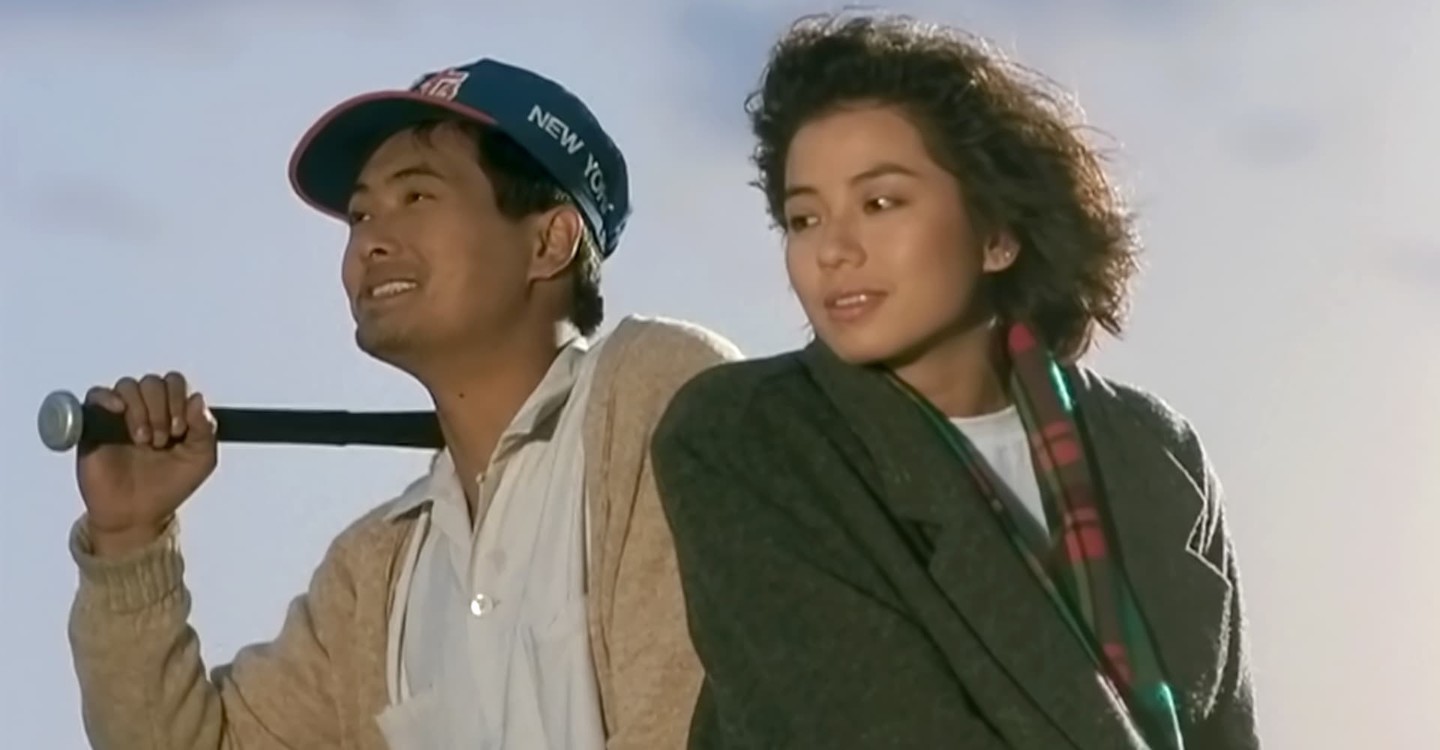
Amateur clay artist Jennifer moves to New York to attend university and reconnect with her boyfriend, but finds herself falling for a distant relative Samuel Pang (Chow Yun Fat), whose street smart attitude helps her adjust to American life. Sam Pang isn’t as prim and proper as her previous suitor, but there’s a charm beneath his gambling, seafaring ways; underneath he’s a wide-eyed dreamer, an immigrant who’s fought hard in America, subtly living through Jennifer by appreciating opportunities she’s lucky to have. “An Autumn’s Tale’s” most heartbreaking moment takes place when Sam throws a party for Jennifer and her friends, as he sashays among dancing couples, offering the young guests food with an awkward and innocent charm. He slowly realizes the American Dream will forever be a well kept secret, locked away in education castles impossible to touch- especially for the likes of him. His sashay becomes a stumble as he drifts apart from Jennifer, slinking back into his gambling addiction.
“An Autumn’s Tale” is a beautiful love story different from all others, painting a fantasy love realer than real love. Director Mabel Cheung’s New York rivals Woody Allen’s and Martin Scorcese’s in her celebration of change, heart, and fall.
4. City on Fire (1987)
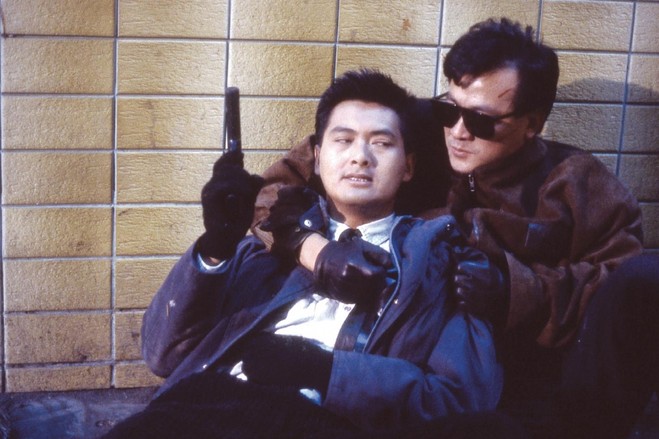
An undercover cop has an unlucky streak of getting attached to the gangsters he’s tricking, and his latest case is not an exception. As Ko Chow’s (Chow Yun Fat) life falls apart, he tries to finish a last mission before ruining his romantic relationship. As the film goes on, Fu (Danny Lee), the mad dog killer the police are tracing, becomes the only man Ko Chow finds solace in. Chow can’t help seeing the humanity in Fu as his gang embarks on one last diamond heist.
Director Ringo Lam is quite underrated when it comes to many film fans, as many see him as only second to John Woo in the heroic bloodshed genre, much like how Sergio Corbucci was seen as second to Sergio Leone in the Spaghetti Western world. But being second to John Woo isn’t an insult at all. Ringo Lam may be the second best heroic bloodsheder, but he’s still a master in his own right.
The head of many unforgettable classics such as “Full Alert,” “Full Contact,” and a thematic trilogy of “On Fire” films, “City on Fire” is his masterpiece that depicts a frantic, street level Hong Kong strangled by institutional corruption in both gangsters and policemen. Released in 1987 and hot off John Woo’s 1986 box office hit, “A Better Tomorrow,” “City on Fire” cemented Chow Yun Fat’s superstardom by placing him in a grounded procedural drama.
If you’ve ever heard of this film, it’s probably because it inspired the plot of Quentin Tarantino’s debut “Reservoir Dogs,” and too often is “City” not evaluated by its own merits, constantly viewed as another b-movie footnote in Tarantino’s pastiche career. They are two different masterpieces, Tarantino’s about an actor getting lost in a role and Lam’s the story of a trapped man who wants to be honest but can’t.
3. God of Gamblers (1989)
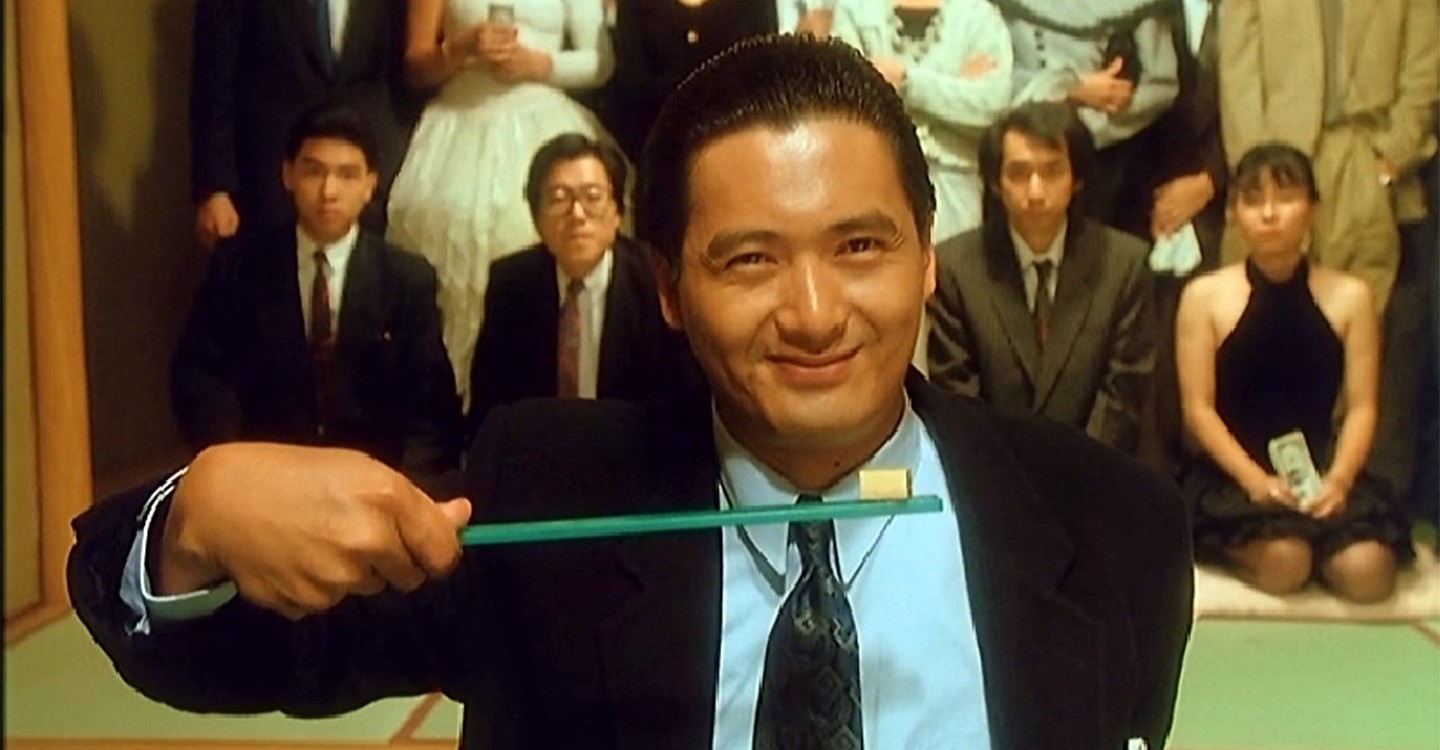
Fat’s second most iconic role to date. Ko-Chun is a superpowered gambling God as well as a suave man with a strong love for chocolate. When aspiring Triad member Knife’s (Andy Lau) prank goes wrong, Ko-Chun suffers from a terrible fall and loses most of his memory, left in a child-like mental state with his unfinished business left hanging. What’s left in his head is chocolate and gambling. Andy Lau questionably befriends Ko-Chun, taking advantage of his cardsharp abilities. Winning gambling matches left and right, they embark on a strange action odyssey filled with acrobatics, slapstick, poker, and chocolate, in the funniest Chow Yun Fat flick.
Directed by controversial auteur Wong Jing, “God of Gamblers” is a genre bending potpourri, five movies for the price of one. The action is epic and bonkers (Knife runs so fast he smashes through a glass window!) and Andy Lau in a red nylon jacket creates one of his most iconic roles as Triad edition James Dean. The gambling face-offs are exhilarating, shuffling the effortless cool of “James Bond” with the intense suspense of “The Karate Kid.” Ko Chun is Fat’s most wacky and multi-personality performance- basically a combo of “Twin Peaks: The Return’s” Dale Cooper and “John Wick” before the two ever existed.
Many more films were spawned tracking the blackjack battle exploits of the Gambling God and his disciples, but this franchise’s original feature is the best, at one point the highest grossing HK flick of all time. Ko Chun’s ace odyssey solidified his place in any casino lover’s mythological pantheon, up there with Hermes and Fortuna. Because “God of Gamblers” is more than a crazed, casino raiding, action-comedy spectacle- it’s the story of becoming a child again, and how that makes you stronger.
2. The Killer (1989)
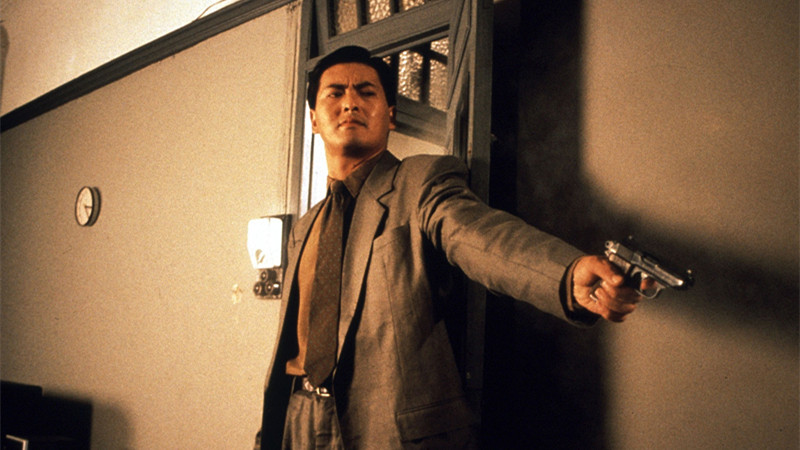
The Killer sits in a church, tranquil, gazing at the Virgin Mary. He doesn’t believe in God, but he’s soothed by Christ’s serenity. Now he’s in a nightclub. His eyes meet with a singer performing a love song. For a moment, they hold their gaze. BANG! The music stops as a bullet rips into a target’s stomach- BANG BANG BANG! Lovely piano notes are drowned by the drumming of bullets. A misfire… blood streaks from the singer’s eyes. Blankness. “Do you remember the murderer’s face?” An officer asks. The murderer’s gun fires- a bloody pool splatters, engulfing the imagination.
The opening of John Woo’s “The Killer” is an atmospheric daydream. Operatic, melodramatic and breathtaking, Chow Yun Fat is in the center as the ultimate hitman with a heart of gold. Ah-Jong (Chow Yun Fat) botches a job by accidentally blinding Jenny (Sally Yeh), a nightclub singer, when shielding her from opponent bullets. To make it up he befriends her and takes one last job to pay for an eye transplant operation. The situation is complicated as ruthless police inspector Li Ying (Danny Lee) develops what can only be described as a maniacal love obsession with this assassin’s unusually sweet behavior.
“The Killer” is set in a mythic movie land where the scummy, backstabbing mobs of Coppola and Scorcese are on the cusp of taking over. Chow Yun Fat is monumental in his onion layered performance, playing a larger than life symbol of honor in a world where it is dying, a phantasmagoric nightmare to all pursuing him, and a tired man broken by a misfire, his mind panging with the thought that his heart may be too soft to be a killer’s.
1. A Better Tomorrow (1986)
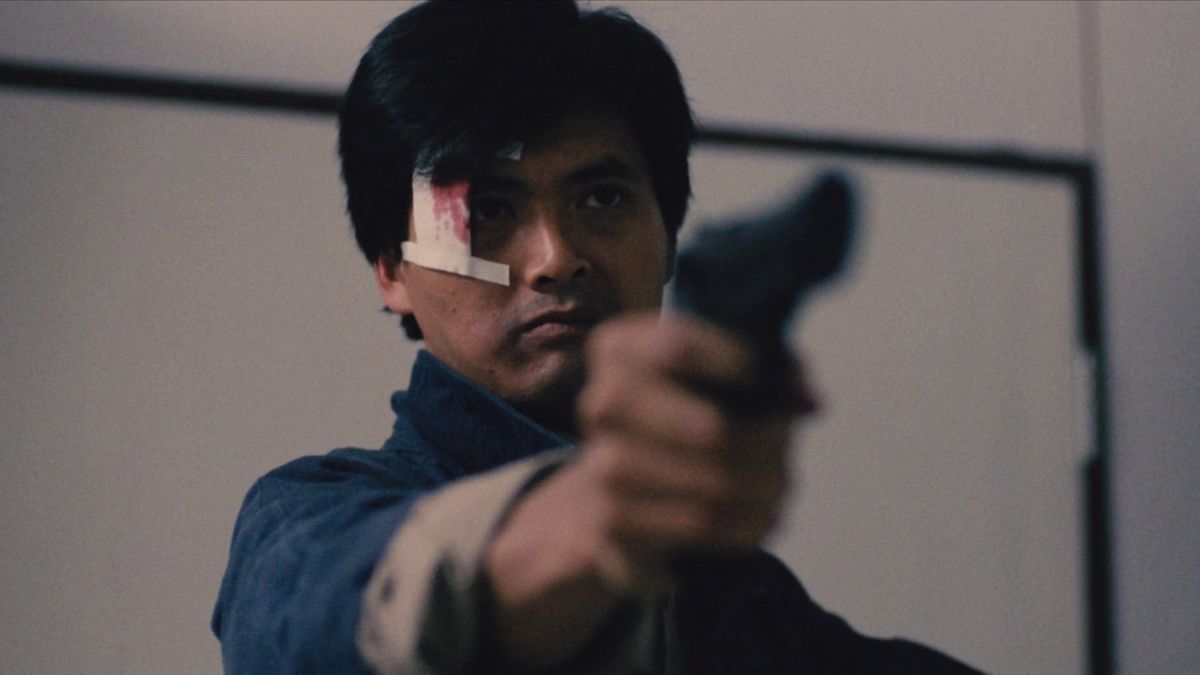
A soap opera on steroids infused with stylish action poetry, “A Better Tomorrow” is the original heroic bloodshed gun fu flick; John Woo’s amped emotions blooming brilliantly with his blood soaked bullet ballads. Best buds Sung Tse Ho (Ti Lung) and Mark (Chow Yun Fat) are kings of the Triad kingdom. Moved by his brother Kit (Leslie Cheung), an aspiring police officer, Ho decides to go straight, turning himself in while inadvertently causing his sick father’s death. Discriminated by both gangster and citizen worlds, and even worse by a revenge seeking Kit, Ho’s release from prison sees him reuniting with Mark, now crippled and homeless. An epic tale of love, brotherhood, and remorse, Ho, Mark, Kit and Triad guns blare to reveal a hero’s true colors.
In Chow Yun Fat’s expansive filmography, this is the movie we can’t stop turning back to. “A Better Tomorrow” transformed soap opera heartthrob Chow Yun Fat into Brother Fat, international action star. Why? His performance as the show stealing, dual handgun wielding Mark, easily cinema’s coolest gangster. A blur of a trench coat, matchsticks, and Alain Deloin sunglasses, he fires with elegance and grace, an honorable desperado pummeling film history with each cigarette drag and gun shot, becoming the blueprint for “John Wick,” and “The Matrix.” Mark still outclasses both- imitation is the best form of flattery!
“A Better Tomorrow’ could be considered dated by modern standards, but the unintentional moments of campiness create a more genuine and endearing work, completely unafraid of itself. Movies today try so hard to be self aware they lose that movie magic.
And that’s what “A Better Tomorrow” is: movie magic. Pure, distilled movie magic. A hellfire picture running on action celluloid dream logic, a spell under which surrender is fate. David Koo’s jazzy, electronic score and Leslie Cheung’s hit song will have you crying and dancing along with each grooving shootout.
Like Mark says, “I am God. You’re one. A god can be human. A god is someone who controls his destiny. Sometimes, there’s things you can’t control. You win some, you lose some.”
The iconic shot of Mark in shades, using his cigarette to light counterfeit Benjamin Franklin aflame, sears itself forever in your brain. BANG!
“Anyone can be a hero. People who help others are all heroes. I found a very popular actor from television and he always helped orphans and the homeless and did a lot of charity. He supported poor kids. This man had a great heart. He was a real hero. So I chose him to play the role. I just wanted him to play himself and be himself in the character. I told him, ‘Forget that you’re a gangster. Remember that you’re a human being and just play human.’” – John Woo